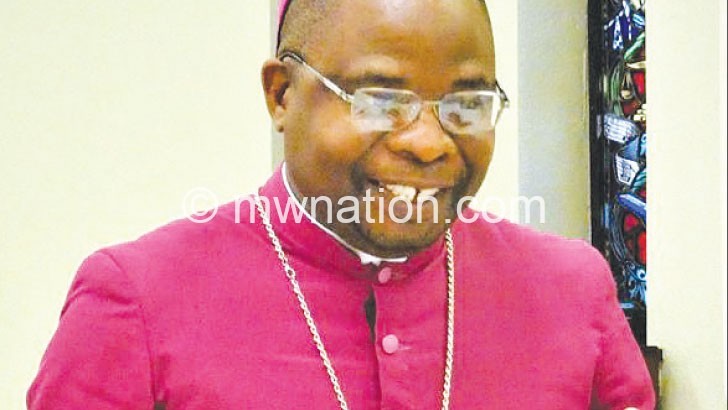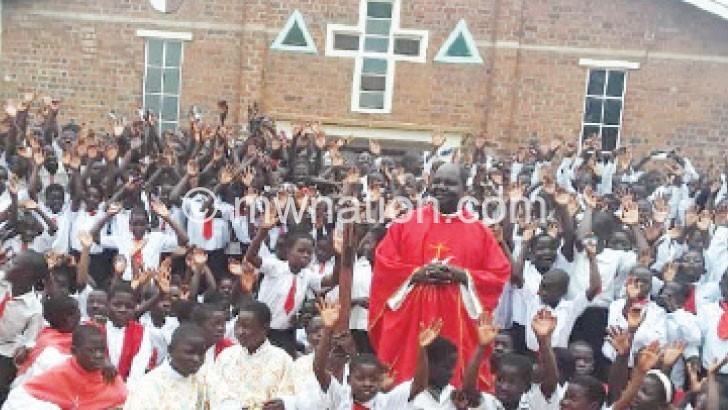Does Benedict XVI herald doomsday?
 Is the end of the world just beyond the next corner? Using the prophesy of Malachy, I raise this uncomfortable question.
Is the end of the world just beyond the next corner? Using the prophesy of Malachy, I raise this uncomfortable question.
There have been many prophecies predicting the end of the world and most of them have been false, but there are a few that are yet to be tested.
Some of those untested prophecies say doomsday is just around the corner.
It is hard to imagine the world ending and the apocalypse coming to life: fireballs falling on earth, meteors smashing dents onto the earth and annihilating all life or fierce lava from a sudden volcanic eruption scorching everything.
Let us not consider Harold Camping who lied that the world would end on October 21, 2011. The old man apologised for his error. Instead, let us consider the prophecy of Saint Malachy, for a moment.
Malachy, a catholic, was bishop of Armagh in Northern Ireland. He lived in the 20th Century.
According to the traditional account, in 1139, Malachy was summoned to Rome by Pope Innocent II. While in Rome, Malachy purportedly experienced a vision of future popes, which he recorded as a sequence of cryptic phrases.
This manuscript was then deposited in the Roman Archive, and thereafter forgotten until its rediscovery in 1590.
In the manuscript, Malachy reportedly wrote short symbolic phrases in Latin representing each pope and supporters of his prophecy say the list has correctly described all popes since 1590, the year the manuscript was found.
For example, according to a book called Prophecy For Today, St. Malachy’s list described a pope later identified as Leo XIII with the words lumen in caelo (light in the heavens), and in fact that pope’s coat of arms included a shooting star.
Benedict XV was supposedly religio depopulata — “religion devastated†(he served during World War I); John XXIII, who had served in the port city of Venice, was pastor et nauta (“shepherd and sailorâ€); and Paul VI was flos florum, or flower of flowers, and his coat of arms indeed displayed the fleur-de-lis (a pattern of flowers).
Pope John Paul I was depicted as de medietate lunae, which means “from half of the moon, and the first two letters of his family name, Luciani, form half of the word “luna.â€
John Paul II, the most recently deceased Pope, was described as “De labore Solisâ€, “Of the Labour of the Sun.†Karol Wojtyla (John Paul II) was born May 18th, 1920 – during a solar eclipse. There was also a solar eclipse on April 8th, 2005, the day of his funeral. He reigned from 1978 to 2005
The list had 112 popes and the current pope, Pope Benedict XVI, is the 11th. This means if the prophecy is to be believed, Pope Benedict’s successor will be the last.
Benedict XVI, whose reign began after John Paul II’s passing, was foreseen as “Gloria Olivaeâ€, “Glory of the Olive.†It is unclear as of yet what this means exactly, though there is speculation.
Benedict the XVI, supposedly, will be either the last or second to last true Pope before a great anti-Pope, said to be the devil incarnate, the Antichrist, will seize the papacy. The last pope will cause trouble and cause Rome to be destroyed, the world to end and ‘the dreadful Judge will judge the people.’
Once Benedict XVI leaves the papacy, we may soon be staring the Antichrist in the face. Or will we not?
The prophecy has not had contestants; it is unpopular amongst Catholics and raises many controversies.
St. Bernard of Clairvaux, Malachy’s contemporary and friend, never mentioned of the prophecy despite him being close to Malachy up to the point of being the one in whose hands Malachy died.
This has led some, including the Catholic Encyclopaedia, to say that the prophecy is a fabrication originating from the late 16th century.
Some historians say that the prophecy was an attempt by a man called Alfonso Chacón, who was a respected intellectual, to influence the election of Cardinal Girolamo Simoncelli into papacy. A passage befitting Simoncelli was coined but it seems the people saw through it and never elected him.
The passage that described Simoncelli never fitted his competitor Gregory XIV who went on to be elected pope and critics of the theory say that means that the whole list was a forgery.
The said passage spoke of a pope Ex antiquitate urbis (from the antiquity of the city), a description that seemed to fit Simoncelli, who was cardinal of Orvieto (literally “old cityâ€, urbs vetus). Clever.
But before we breathe a sigh of relief and dispel the alleged prophecy of St Malachy, there are just two popes remaining before the so-called antichrist takes over to oversee the destruction of Rome and the end of the world.
Why do we not wait and see. Afraid?
But even with Malachy discredited, some people say according to the ancient Mayan calendar, the world will end on December 21, 2012.





